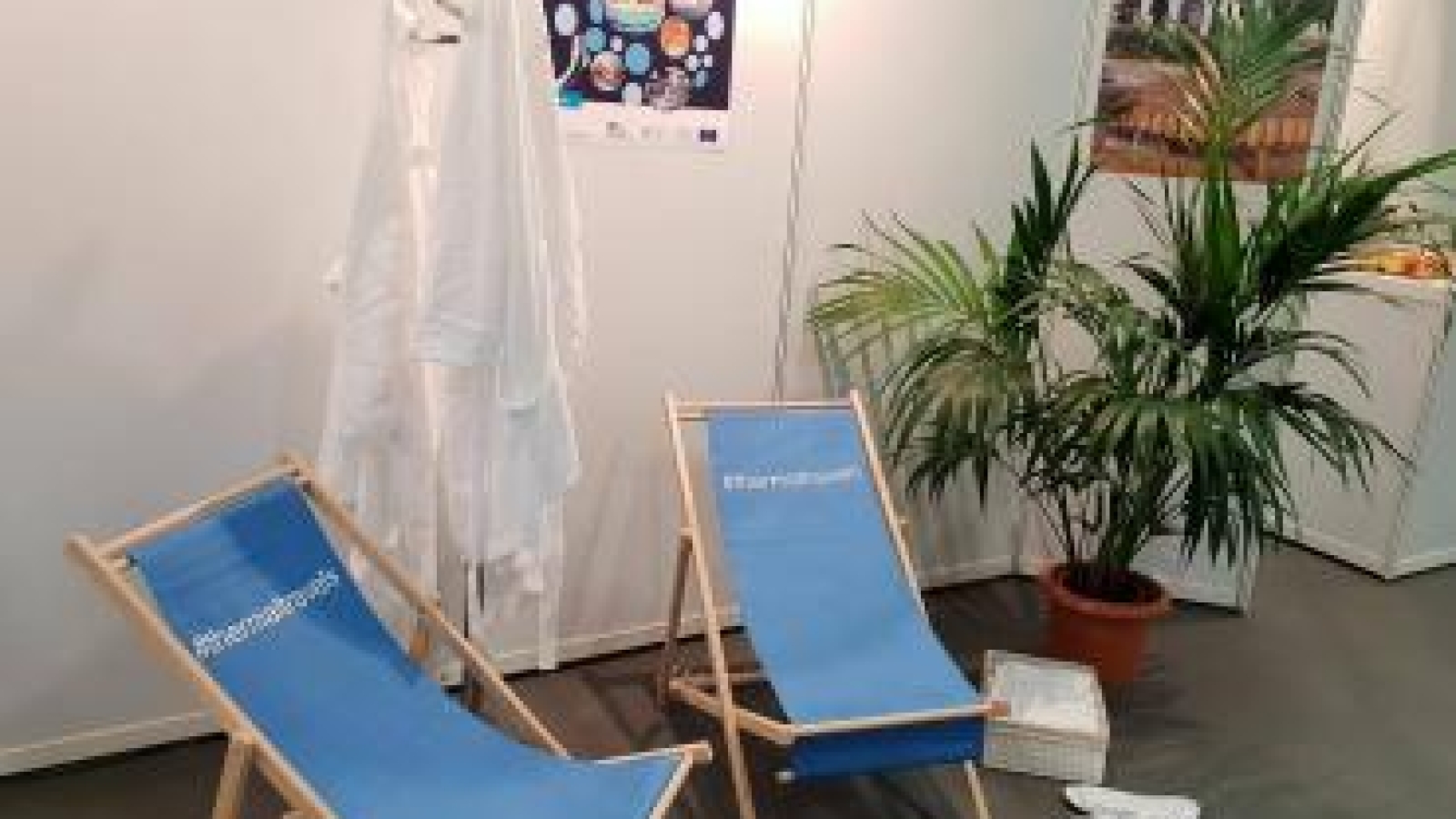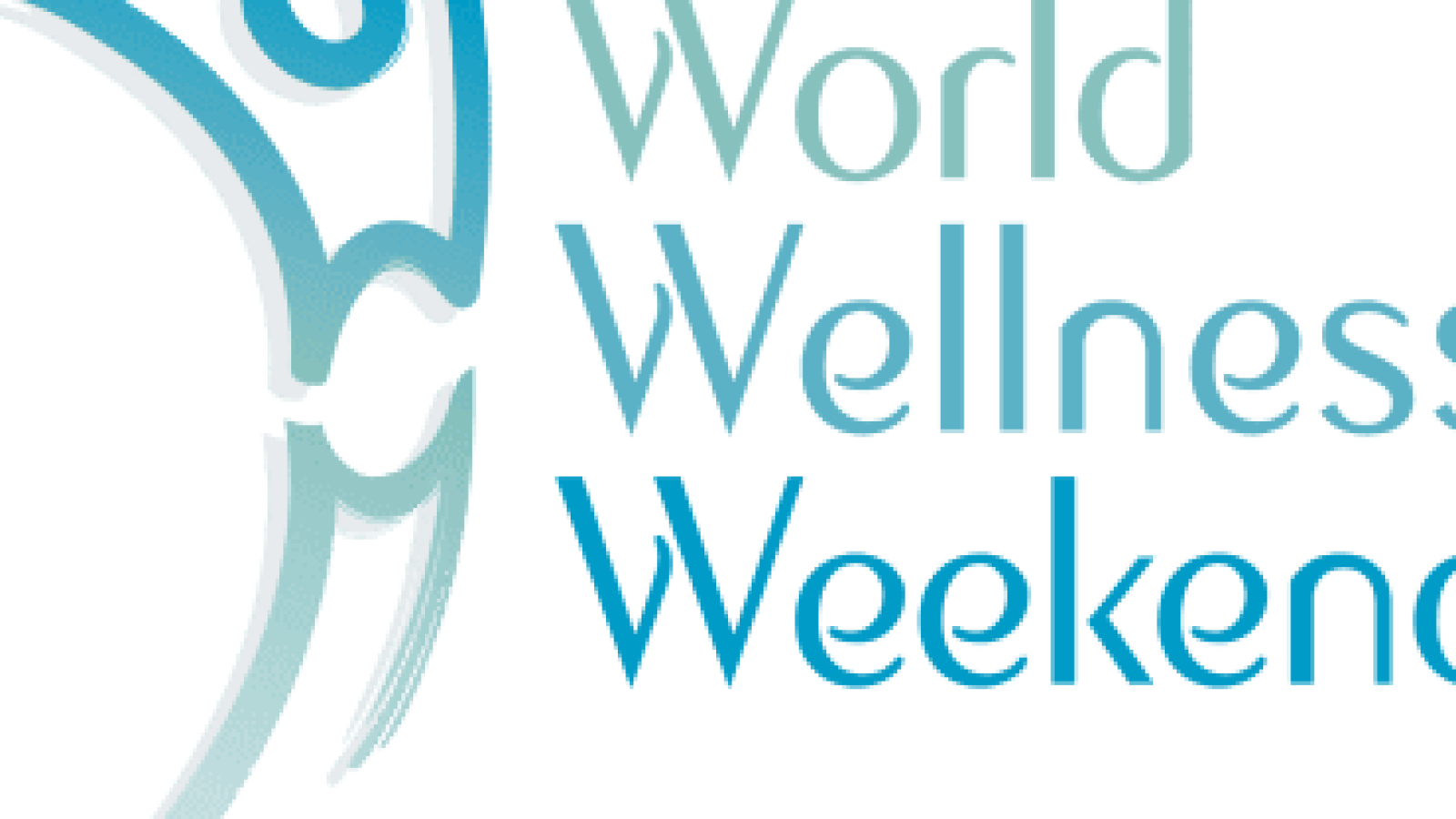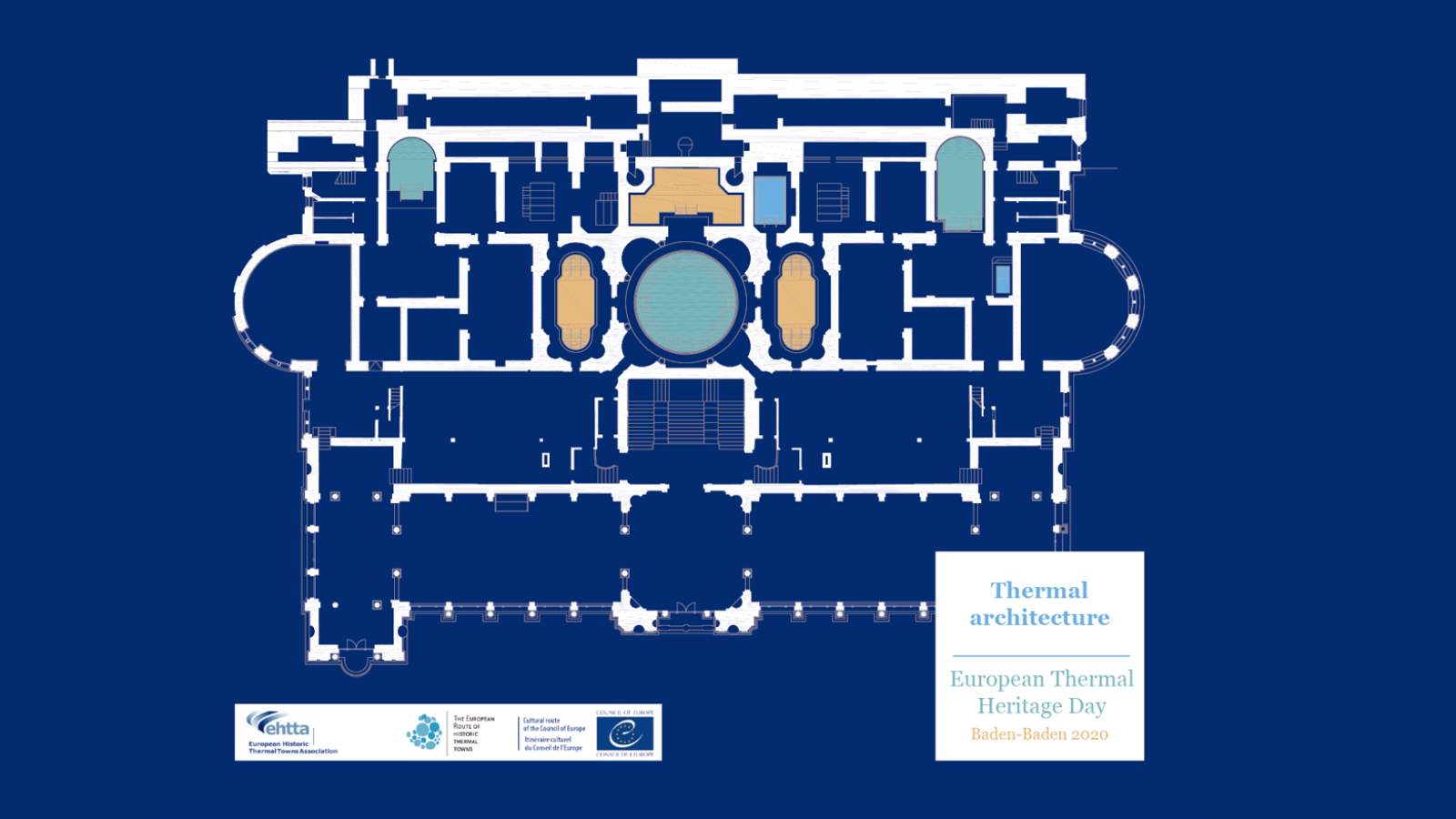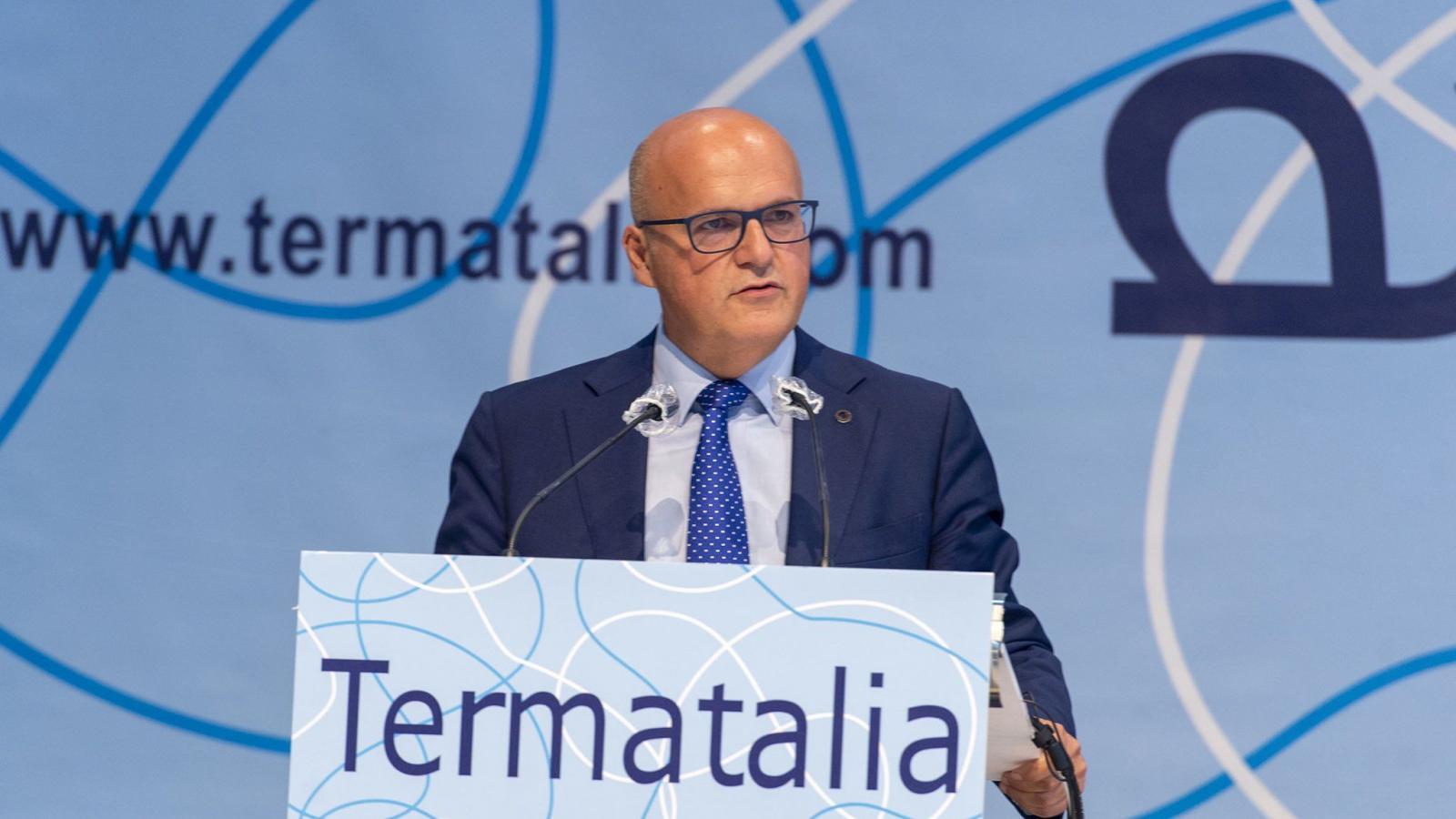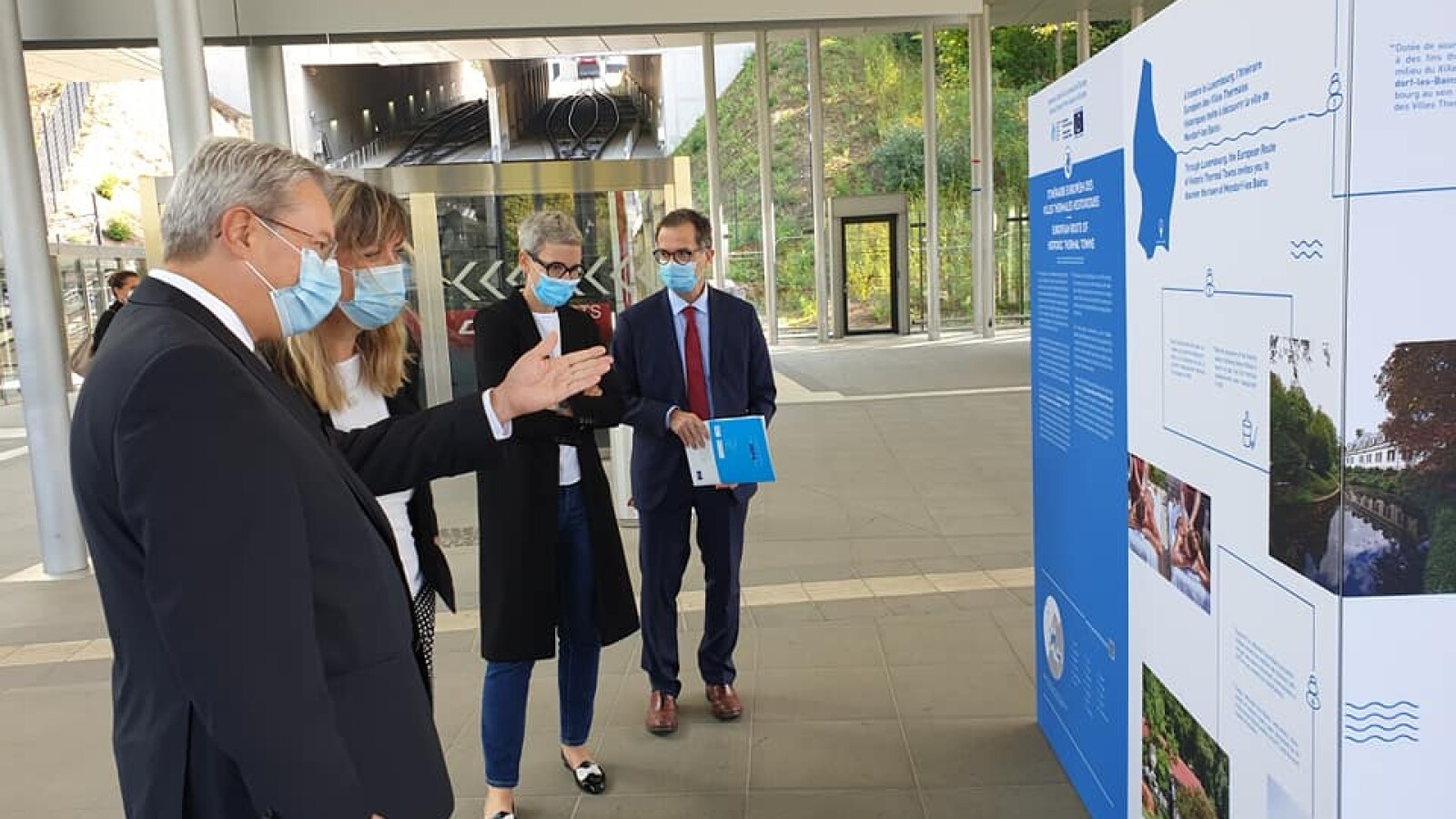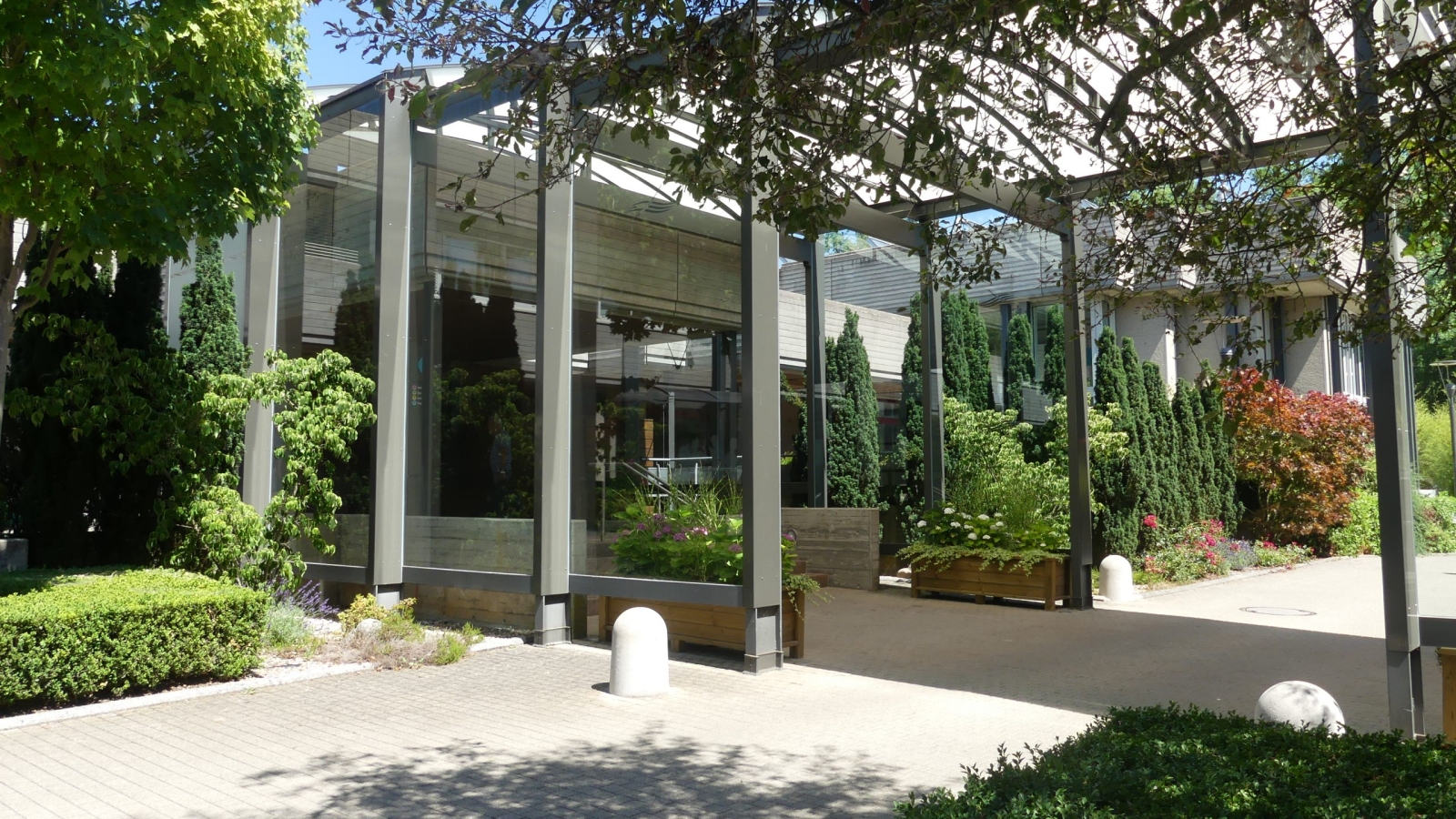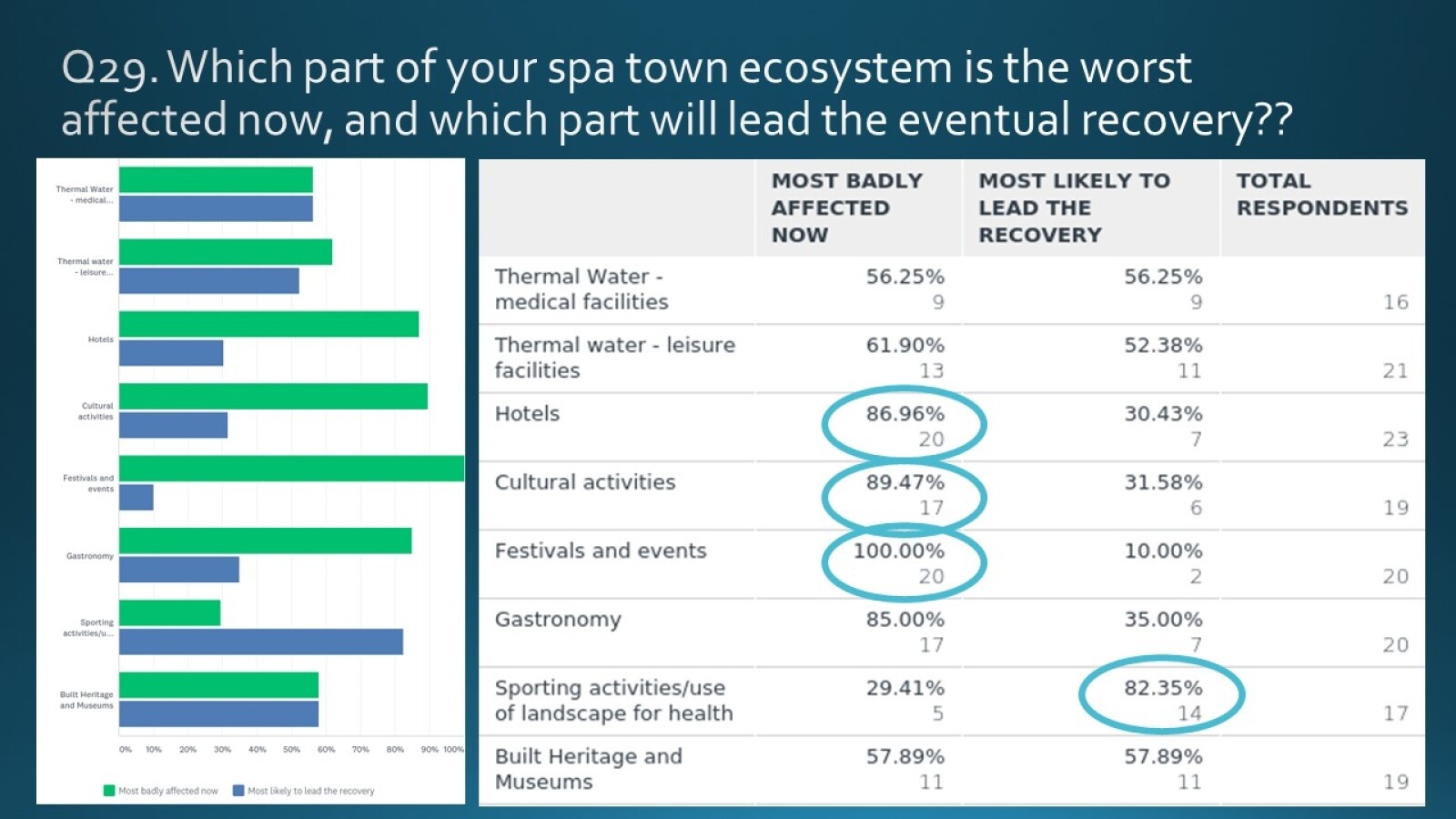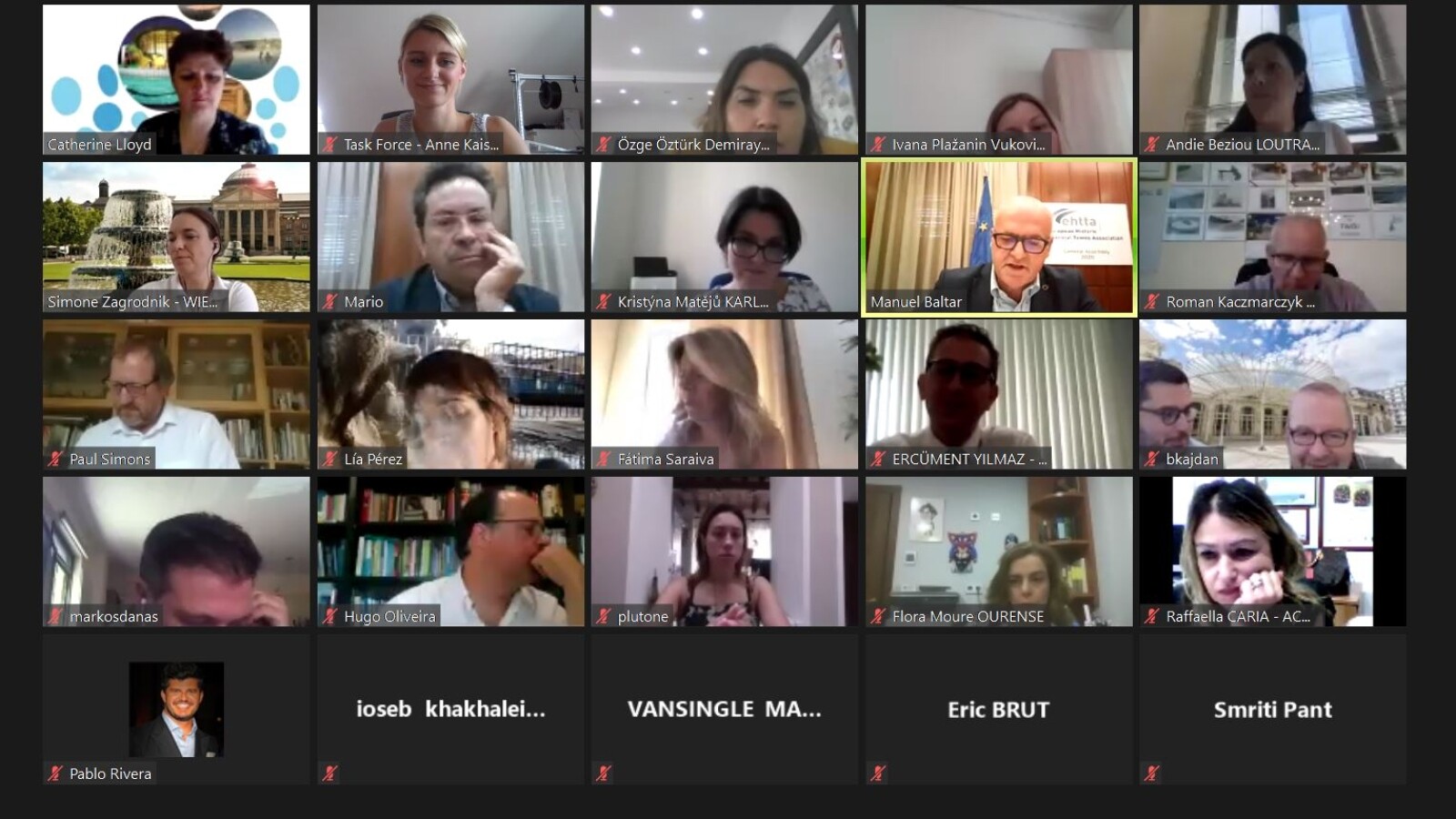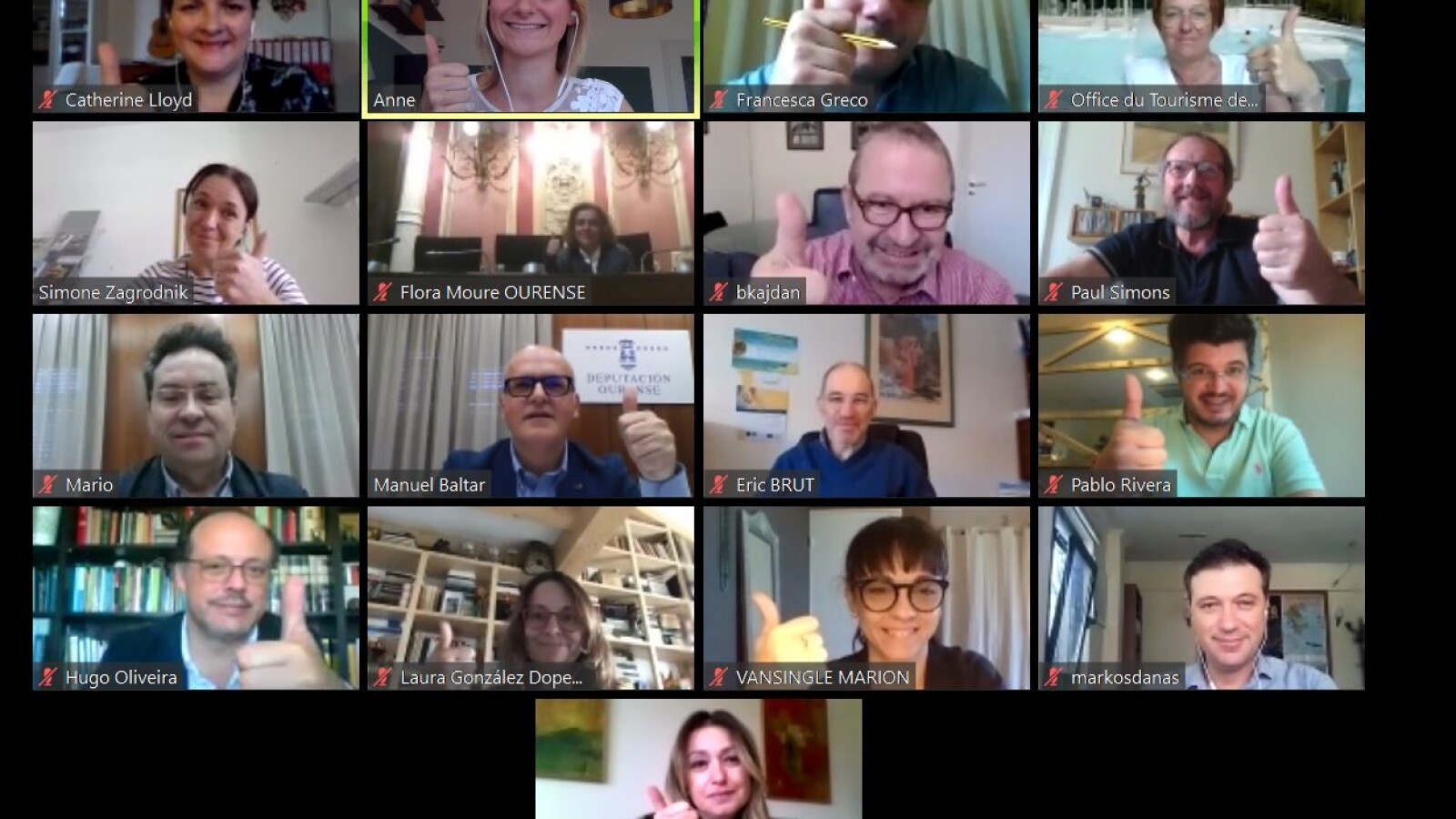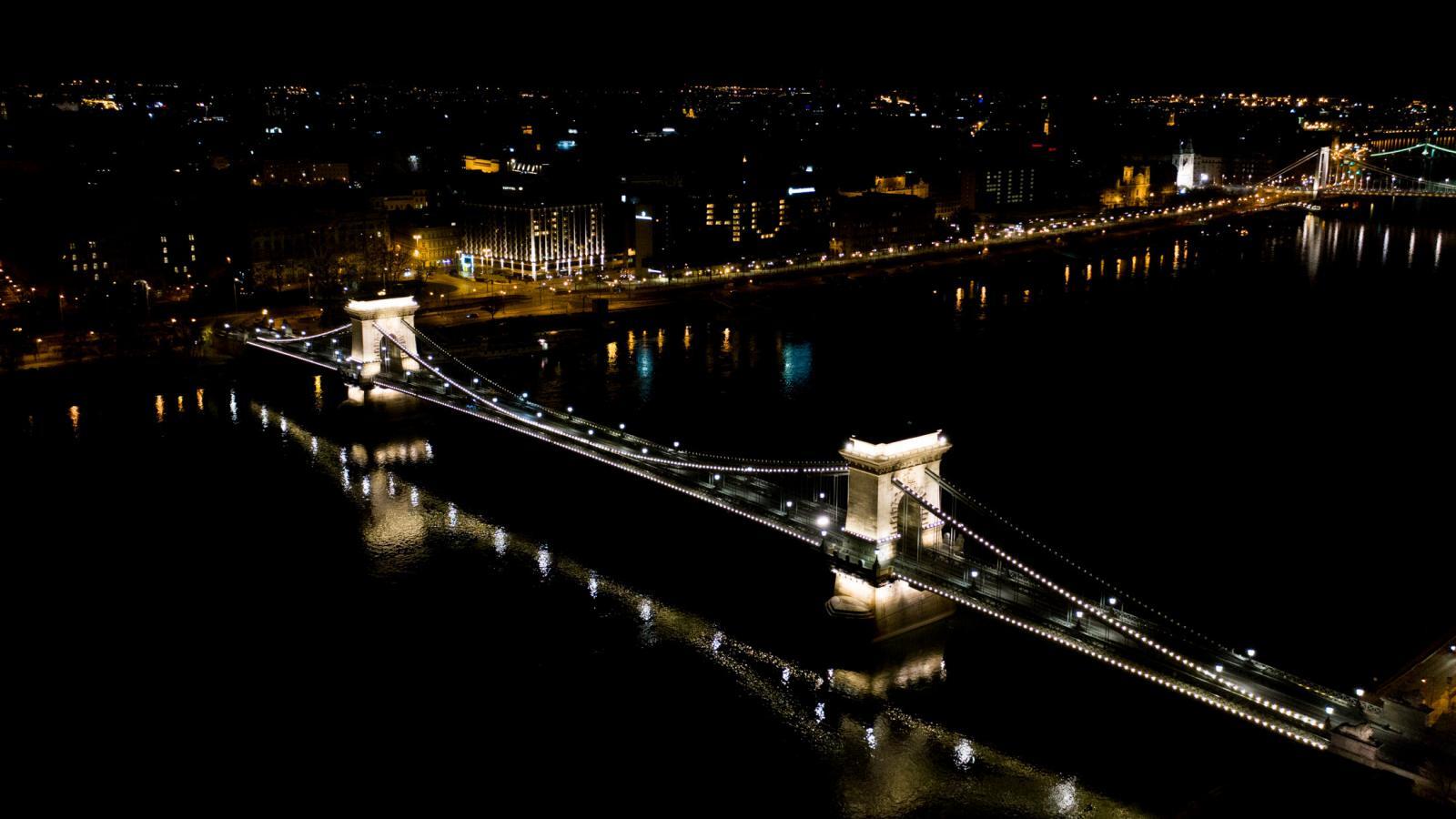EHTTA’s first General Assembly 2020 took place
EHTTA Held its first ever Online General Assembly on the 23rd and 24th June, with Members joining a Zoom Conference over four sessions. The morning session of the General Assembly was a networking and welcoming session, followed in the afternoon with the Association busines, including several activity reports, financial matters, and plans for future events.
In his opening speech, Mr Baltar welcomed the “new normality” and talked about the gradual opening of thermal facilities and tourism in our member towns – the network of the towns of health in Europe. He said, “It is time to face this situation with renewed energy, new ideas, and new efforts to valorise the environment that has been at the service of health for Europeans and to visitors for hundreds of years.” Mr Baltar reminded members that it is a year since he and the Vice Presidents took up their positions, and he paid tribute to former President, Mr Bellandi, saying “The Association would not have got where it is without the untiring work of the ex-President and good friend Mr Bellandi”. Mr Baltar sent warm greetings to him, and thanked former members of the Task Force for their hard work. He went on to thank the Scientific Committee and the EHTTA Co-ordinator, and looking forward to when Simone Zagrodnik takes up her post as Executive Director he said that she will help to bring new opportunities and to move the Association to international recognition. Mr Baltar finished by talking about the work that is taking place with some of the most important organisations in our sector in Europe, and said he was pleased to say we’ve been well received.
The Association welcomed Mondorf-les-Bains in Luxembourg and Castrocaro Terme e Terra del Sole in Italy as new members, and heard short presentations from representatives of the towns, as well as seeing some videos of these new members of our Cultural Route of the Council of Europe. EHTTA President, Mr Baltar, also welcomed Simone Zagrodnik as the new EHTTA Executive Director who will take up her new post at the start of August. Members heard about Simone’s vision for the future of EHTTA and her priorities and learned about the “EHTTA House“. Members of the Association then had the opportunity to update each other on how tourism is moving once again in each town, and how the recovery is starting in the network.
In the second session of the General Assembly, members voted to accept the 2019 Annual and Financial Reports, and to accept the Emergency Budget for the remainder of 2020. Mario Crecente talked about plans for European Thermal Heritage Day on 16th October and Simone Zagrodnik talked about the Technical meeting planned for the 17th October – both in Baden-Baden. Members also heard about the development of EHTTA’s first international event in Saratoga Springs in October 2021, and received an update from the Scientific Committee on potential new members. Anne Kaiser presented the Communications Report, showing how EHTTA’s online activity and social media has grown since the start of the pandemic. Anne was thanked by Mr Baltar for her work, as she will leave EHTTA for a new role at the end of June. The members also saw the results of the Impact Survey carried out in April and May, and learned about a new Manual and Sharefile System, which will soon become useful tools for members.
Day two of the General Assembly was more like a training session and webinar. We were honoured to be joined by Mr Stefano Dominioni , Executive Secretary of the Enlarged Partial Agreement on Cultural Routes – Directorate of Democratic Participation (DGII) Council of Europe; and Director of the European Institute of Cultural Routes and Carolina Clark, Project Manager of the European Institute of Cultural Routes. After a fascinating session on the Cultural Routes of the Council of Europe, there were several presentations from different routes (The European Route of Industrial Heritage, the Via Francigena, the HANSA, and the European Cemeteries Route) of which have all developed great projects, hailed as best practice in the five priority fields of action of the Cultural Routes Programme. Carolina Clark also talked about youth initiatives around the Cultural Routes of the Council of Europe.
All the presentations are available for members to download from the new Sharefile system.
In the afternoon, Members heard updates from key partners (The Great Spas of Europe, The Route des Villes d’Eaux du Massif Central, The European Heritage Alliance 3.3. and the European Tourism Association).
Members are able to download presentations, papers and videos from the meetings from the Sharefile system, and are also asked to give feedback on the General Assembly, through this link. https://forms.gle/bGZg3tW4RTJtKxgG8

